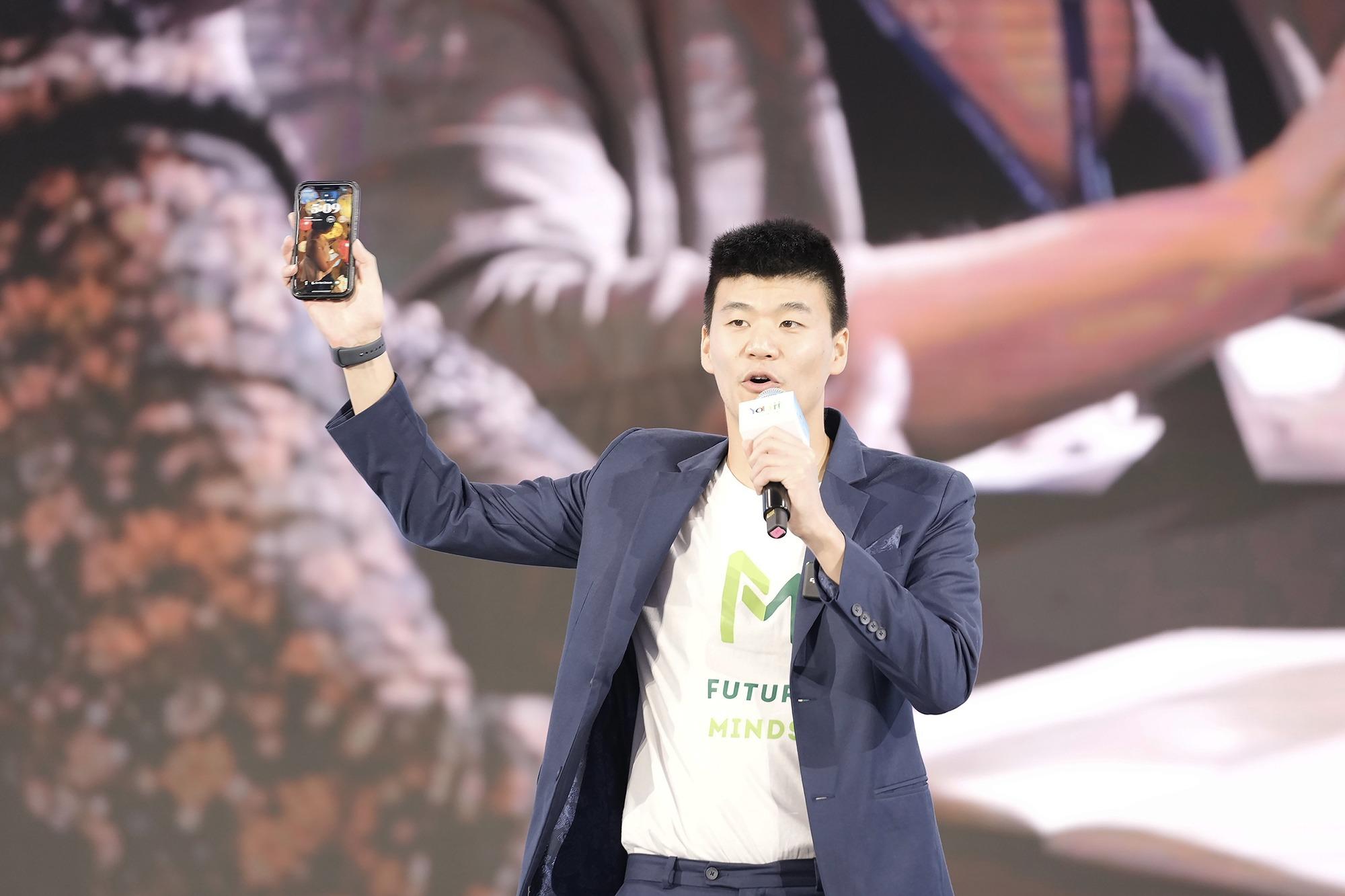 Nathaniel Diong, the founder and CEO of Future Minds Network, spoke at the World Youth Development Forum on Oct 31, 2023 in Beijing. (LI JUNHUI / FOR CHINA DAILY)
Nathaniel Diong, the founder and CEO of Future Minds Network, spoke at the World Youth Development Forum on Oct 31, 2023 in Beijing. (LI JUNHUI / FOR CHINA DAILY)
Countries worldwide are taking various paths to digital development, but regardless of the route chosen, Shapkat Wushur, vice president of the All-China Youth Federation, asserts that young people are the driving force behind this progress.
But why entrust the youth with this crucial role, and how can they fulfill these expectations?
I’d like to think of the word ‘fail’ as the abbreviation for ‘first attempt in learning’. Get out on the field and understand that failure is an integral part of the learning process.
Nathaniel Diong, the founder and CEO of Future Minds Network
Answers to these questions might be found at the 2023 World Youth Development Forum. At a sub-forum focusing on digital development, held on Oct 31 in Beijing, international organizations, young leaders, foreign scholars, and entrepreneurs engaged in passionate discussions centered around the theme of "Digital Technologies Empower Youth Development".
Speakers, including Aleksandar Sasha Bodiroza, deputy regional director of UNFPA Asia-Pacific Regional Office, and Amakobe Sande, UNICEF representative to China, pointed out that while digital development offers boundless opportunities for young people, it has also led to a digital divide due to factors such as gender disparities and limited access. They emphasized that bridging this division is a global mission.
One advocate working diligently to bridge this digital gap is the UNDP Asia Pacific's program specialist, Beniam Gebrezghi. He mentioned that the organization focuses on building youth skills through initiatives like "trainers of trainers", which emphasizes the power of young people mentoring their peers because "there is nothing more powerful than a young person training another young person".
Nathaniel Diong and his Future Minds Network (FMN) are living examples of Gebrezghi's vision.
As a member of Generation Z himself, Diong founded FMN when he was just 16 years old, driven by his own experiences when his career adviser suggested that he become a gardener. "I hate the outdoors and gardening," Diong was dumbfounded. He hoped that other teenagers could have a clear idea about their desired careers and obtain the necessary skills.
That's why he founded FMN, a certified social enterprise committed to empowering young people aged 16 to 25 with essential social, technological, and entrepreneurial skills to thrive in an ever-evolving future.
According to Diong, FMN offers a comprehensive and sustainable solution for young people on their career journeys, taking a holistic approach to development. The program covers interactive dialogues and workshops designed to cultivate specific skill sets, including creative thinking and communication skills. These foundational skills lay the groundwork for an experiential learning process, culminating in the creation and submission of a meaningful project. "They learn by doing, and we literally walk them through how to bring their ideas to life," Diong said.
In the next phase of the program, FMN will facilitate valuable connections between students and experienced mentors who have successfully launched their own businesses. As Diong puts it, "The mentors can help guide the students and provide them with practical life advice and lessons on the mentalities needed to run a business."
Following this mentorship phase, FMN engages in one-on-one discussions with these young people to chart their future paths, whether it involves starting their own ventures or pursuing other employment opportunities. Their goal is to empower Generation Z in a sustainable manner. "Once our program concludes, we believe the most critical aspect is where young people can continue to find ongoing support," Diong said.
Diong underscored the necessity of not only preparing young employees but also educating employers to adapt to the evolving needs of the future workforce. He points out that by 2025, Generation Z will comprise 30 percent of the global workforce, yet many businesses struggle to attract and engage this demographic.
"Future Minds Network serves as a vital bridge between employers and young employees. We are assisting young people in securing employment while helping employers understand the unique perspectives and values of the younger generation."
Unlike previous generations who often remained with a single job for their entire careers, Generation Z approaches work differently. According to Diong, they are more likely to change jobs frequently, pursuing opportunities that align with their passions and ethical values.
"We have identified this significant challenge and recognized a remarkable opportunity to support young people," Diong said. "As a result, we have shifted our focus to the question of 'how can we help governments understand that each generation operates differently?' By understanding these differences, we can drive positive changes."
In Diong's perspective, Generation Z stands out as a highly resourceful, creative, and exceptionally diverse cohort. This diversity fuels a wealth of fresh ideas and perspectives, while their innate technological proficiency positions them as the most tech-savvy age group to date. "They're called 'digital natives' for a reason, and they have adapted to technology at a rapid pace," he said.
Despite their access to countless digital tools, these digital natives face an ever-evolving landscape of challenges. To help these young people become proactive doers, Diong advises them to challenge conventional norms.
"I'd like to think of the word 'fail' as the abbreviation for 'first attempt in learning'. Get out on the field and understand that failure is an integral part of the learning process," Diong said.


